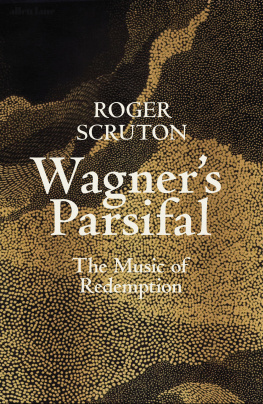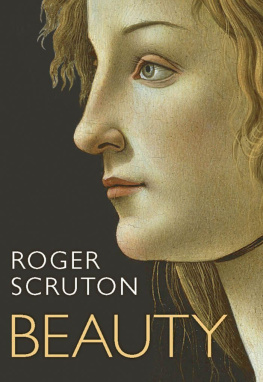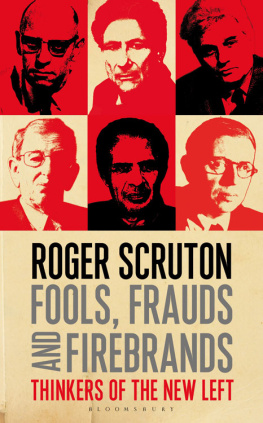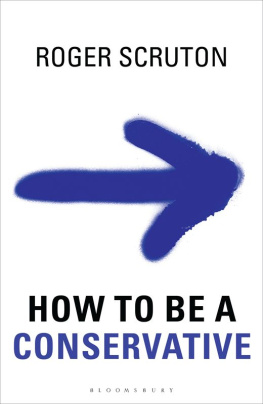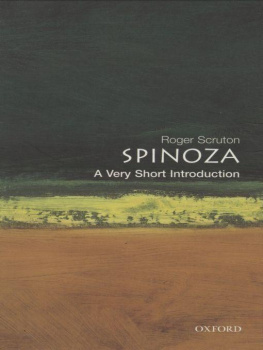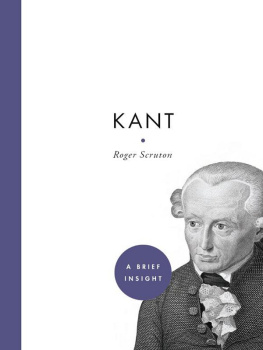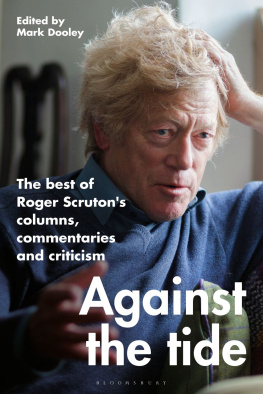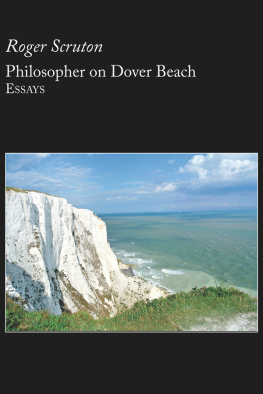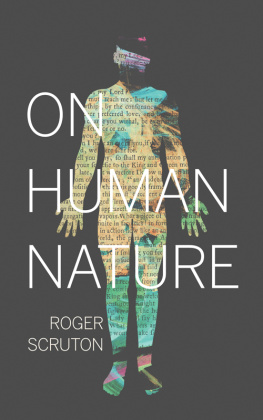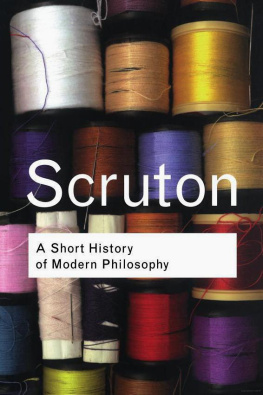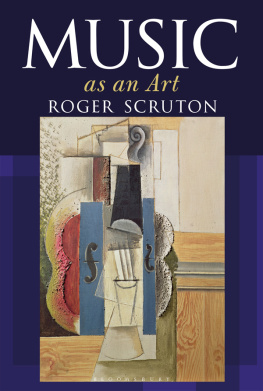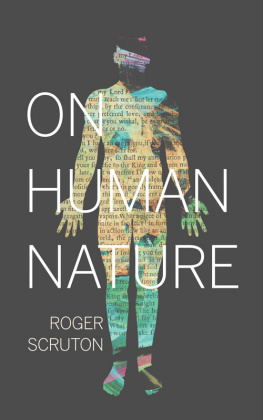The Soul of the World

Roger Scruton
The Soul of the World

PRINCETON UNIVERSITY PRESS
PRINCETON AND OXFORD
Copyright 2014 by Roger Scruton
Requests for permission to reproduce material from this work should be sent to Permissions, Princeton University Press
Published by Princeton University Press, 41 William Street, Princeton, New Jersey 08540
In the United Kingdom: Princeton University Press, 6 Oxford Street, Woodstock, Oxfordshire OX20 1TW
press.princeton.edu
Excerpt from Philip Larkins poem Aubade reproduced with permission from Faber and Faber Ltd.
All Rights Reserved
Library of Congress Cataloging-in-Publication Data
Scruton, Roger.
The soul of the world / Roger Scruton.
pages cm Includes bibliographical references and index.
ISBN 978-0-691-16157-0 (hardcover : alk. paper) 1. Faith. I. Title.
BL626.3.S38 2013
202dc23
2013027012
British Library Cataloging-in-Publication Data is available
This book has been composed in Sabon Next Pro and Chaparral Pro
Printed on acid-free paper.
Printed in the United States of America
1 3 5 7 9 10 8 6 4 2
Contents

Believing in God 1
Looking for People 27
Looking at the Brain 51
The First-Person Plural 76
Facing Each Other 96
Facing the Earth 115
The Sacred Space of Music 140
Seeking God 175
Preface

This book is based on the Stanton Lectures, delivered in the Michaelmas (fall) term of 2011, in the Divinity Faculty of the University of Cambridge. My intention has been to draw on philosophical discussions of mind, art, music, politics, and law in order to define what is at stake in the current disputes over the nature and ground of religious belief. I regard my argument as making room, in some measure, for the religious worldview, while stopping well short of vindicating the doctrine or practice of any particular faith. Here and there I have given references; but for the most part the manner is informal, and allusions to other writers more conversational than scholarly. I revisit topics explored more thoroughly in The Aesthetics of Music (1997), and Understanding Music (2009). Looking back on those four books, from the perspective offered by the Stanton Lectures, I have come to see more clearly that the positions that naturally appeal to me in aesthetics also suggest a theological elaboration.
I am very grateful to the Faculty of Divinity at Cambridge University for inviting me to give these lectures, and to the lively audiences who turned up each week to encourage me. I am particularly grateful to Douglas Hedley for his support and for getting me to think about the questions afresh. Previous versions of this book have been read by Fiona Ellis, Robert Grant, Douglas Hedley, Anthony OHear, and David Wiggins, and I am very grateful to them for their helpful comments. I am grateful too for the illuminating comments provided by the two anonymous readers consulted by Princeton University Press, as well as to Ben Tate of Princeton University Press for his encouragement.
Scrutopia, May 2013
The Soul of the World


Believing in God
The currently fashionable discussions of religious belief arose partly in response to the confrontation between Christianity and modern science, and partly in response to the attacks of 9/11, which drew attention to another confrontation, between Islam and the modern world. In both confrontations, as popularly understood, reason points one way, and faith the other. And if faith justifies murder, faith is not an option.
However, the two confrontations have entirely different origins. One is intellectual, the other emotional. One concerns the nature of reality; the other concerns how we should live. Public intellectuals who have espoused the atheist cause often give the impression that religion is defined by a comprehensive explanation of the world, one that incidentally brings comfort and hope, but which, like every explanation, can be refuted by the evidence. But the religion of the Islamists is not like that. It is not primarily an attempt to explain the world, or to show the place of creation in the course of nature. It originates in a need for sacrifice and obedience. No doubt Islamists entertain many metaphysical beliefs, including the belief that the world was created by Allah. But they also believe that they are subject to Allahs commands, that they are called to sacrifice themselves on Allahs behalf, and that their lives will acquire a meaning when thrown away for Allahs sake. Those beliefs are more important to them than the metaphysics, and will survive any niggling attempt to refute the basic tenets of theology. They express an emotional need that precedes rational argument and which shapes the conclusions of theology in advance.
This emotional need can be widely observed, and not only among explicitly religious communities. The desire for sacrifice is rooted deep in all of us, and it is called upon not only by religions but also by For it suggests that, in totalitarian societies, where the capacity for self-sacrifice is worn thin by the relentless stream of petty punishments, nothing stands out as worthy of our care. This is the secular residue of the core religious thoughtthe thought that the sacred and the sacrificial coincide. Of course, there is the greatest difference in the world between religions that demand self-sacrifice, and those (like that of the Aztecs) that demand the sacrifice of others. If there is anything that could be called progress in the religious history of mankind, it resides in the gradual preference for the self over the other as the primary sacrificial victim. It is precisely in this that the Christian religion rests its moral claim.
Religion and Evolutionary Psychology
We live in an age of debunking explanations, and the once-popular debunkings of the sociologists are now in their turn debunked by evolutionary psychology. There is a widespread sense that social facts that were previously understood as part of culture are now to be explained as adaptations, and that, when we have so explained them, we have removed their aura, so to speak, deprived them of any independent hold on our beliefs and emotions, and reduced them to aspects of our biology. The Durkheimian account of religion has been pressed in this direction. Religions survive and gain a following, it is said, because they further the reproductive strategies of our genes. By belonging to a group whose members are bound by the rule of sacrifice, you obtain substantial reproductive benefitsterritory, security, cooperation, and collective defense. Hence religions do not merely encourage and demand sacrifice: they show a consuming interest in the reproductive life of their members. The gods assemble at those rites of passage in which one generation prepares the way for, and concedes victory to, its successorat birth, coming of age, marriage, and death. They are fascinated by our sexual habits, insisting in certain cases on genital mutilation, circumcision, and complicated rituals of sexual purity. They have set their faces against incest, adultery, and promiscuous sex, and in general constrain our sexual lives along the path that favors future children over present pleasures, and the transfer of social capital over the squandering of moral resources. So closely do traditional religions fit to the strategies of our genes, and so callously do they seem to favor the genotype over the phenotype, that it is tempting to say that there is little or nothing more to be understood by the one who is seeking an explanation of the religious urge. It is an adaptation like any other, and if it seems to be rooted so deeply within us as to be beyond the reach of rational argument, this is entirely to be expected, since that is how adaptations are passed on.
Next page

